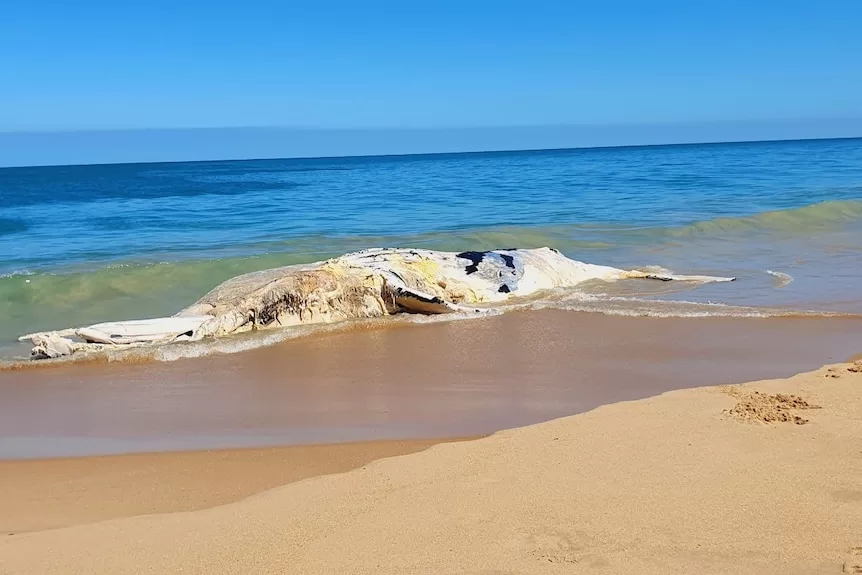- In short: There are calls for the WA government to commit to footing the bill for dead whales that wash up on the state’s coast.
- Councils are paying tens of thousands of dollars to remove the animals from popular beaches.
- What’s next? The state government says it has no plans to change its policy requiring land managers to remove dead whales.
Ahead of the yearly whale migration up WA’s coastline, a South West council is worried about being lumped with “staggering” bills for removing washed-up whale carcasses.
The Shire of Waroona paid about $20,000 to remove a whale that washed up on Preston Beach, south of Perth, late last year.
Shire President Mike Walmsley said it was a “significant”, unplanned cost for a small regional council.
“The cost to take it from the beach and to remove it to landfill was about $20,000,” he said
“We didn’t ask the whale to land on our section of the beach.”
Mr Walmsley said he was worried about having to pick up another bill this year, and called for the state government to step in and help with costs in these situations.
“We’re all in the same boat and the cost of that could be quite staggering if we ended up with multiple whales over a certain amount of time,” he said.
“I fear for any of these councils that have to keep continually paying for removal. l don’t think that’s fair that all ratepayers should be paying for that.
“I think that that should be a cost that is subsidised or borne by the state government.
“It’s not our whale … we don’t own the whale, obviously. But our local ratepayers all have to chip in to pay for its removal.”
Help offered in the past
It is not the first time a rift has emerged between local councils and the state government over who should pay for whale disposal.
In 2014, a 17-metre humpback whale washed up on the popular Scarborough beach in Perth.
It took three days to remove the animal and cost the local council $190,000.
Eventually, the then-Liberal state government partially reimbursed the council for the bill.
City of Stirling beach services leader John Snook said he was happy some of the cost had been recovered for ratepayers but stopped short of calling for those arrangements to become the norm.
“The city was very, very, very happy that the state government reimbursed the city to a 50-50 cost sharing arrangement,” he said
“In that individual instance, it was recognised that Scarborough Beach being a major, major tourist destination, it was appropriate that the cost be shared.”
He said councils should make their own applications to the state when they needed help.
“Probably the best outcome is to let them decompose naturally,” he said.
“When we move forward towards more populated areas then I think it’s important to look at each case on an individual basis and make an appropriate determination from there.
“There is always scope for cost sharing. But to make that an ironclad rule of thumb is probably not really appropriate right at this moment.”
No plans to pay
Removing the carcasses from public beaches is the responsibility of the local government as the land manager, unless the animal washes up on a marine park or waters managed by the Department of Biodiversity, Conservation and Attractions (DBCA).
A department spokeswoman said there were no plans to change the policy.
“The state government has a clearly defined policy position on the responsibilities for whale carcass management whereby the land manager is responsible for the carcass,” the spokeswoman said.
“DBCA works closely with local governments in providing technical assistance, and in some cases may share equipment and operational gear depending on the circumstances.”
Find more local news
Browse for your location and find more local ABC News and information
